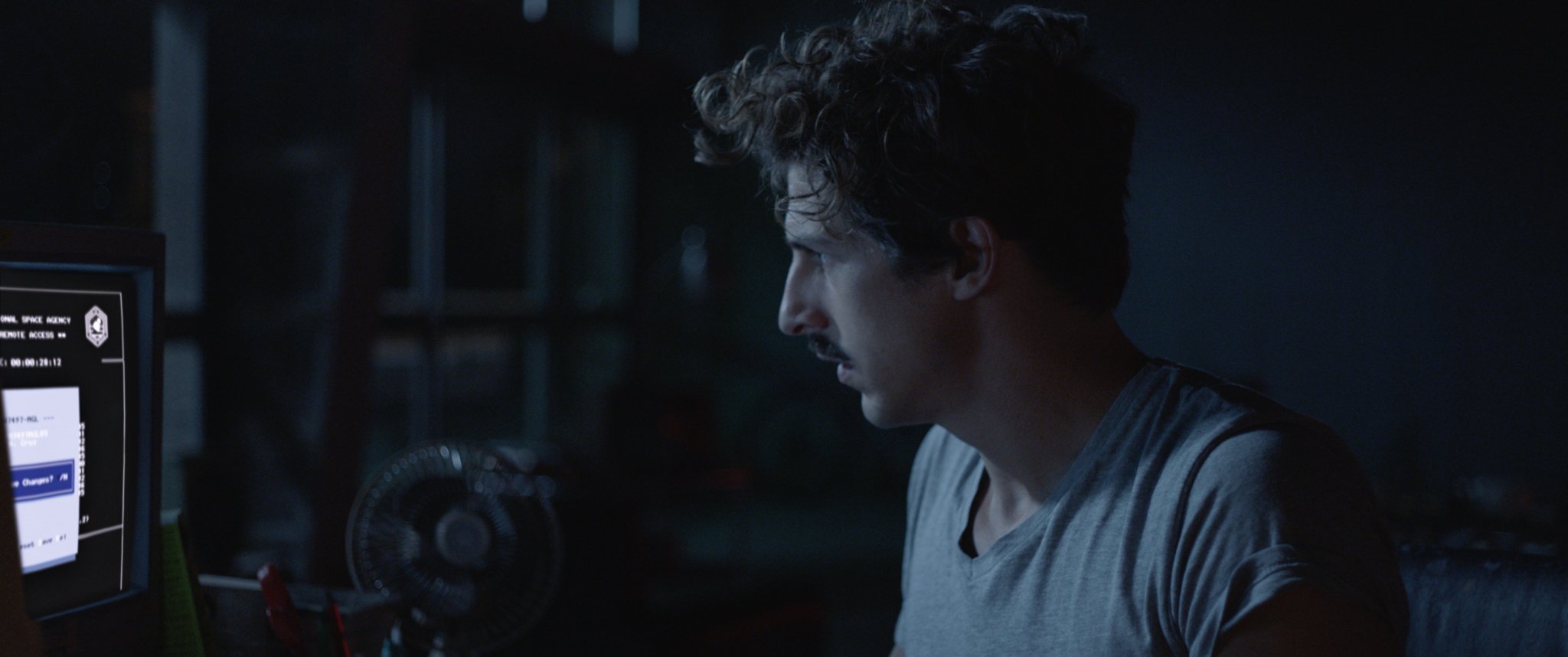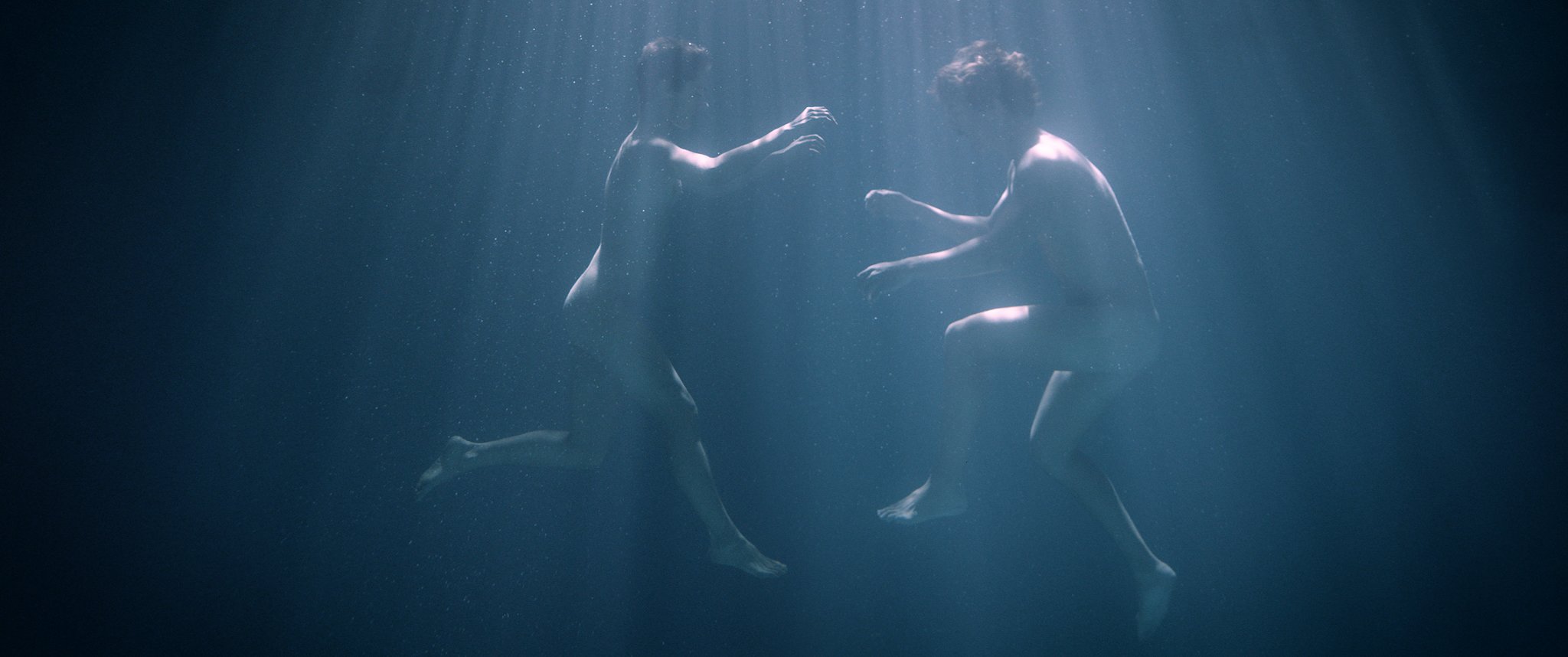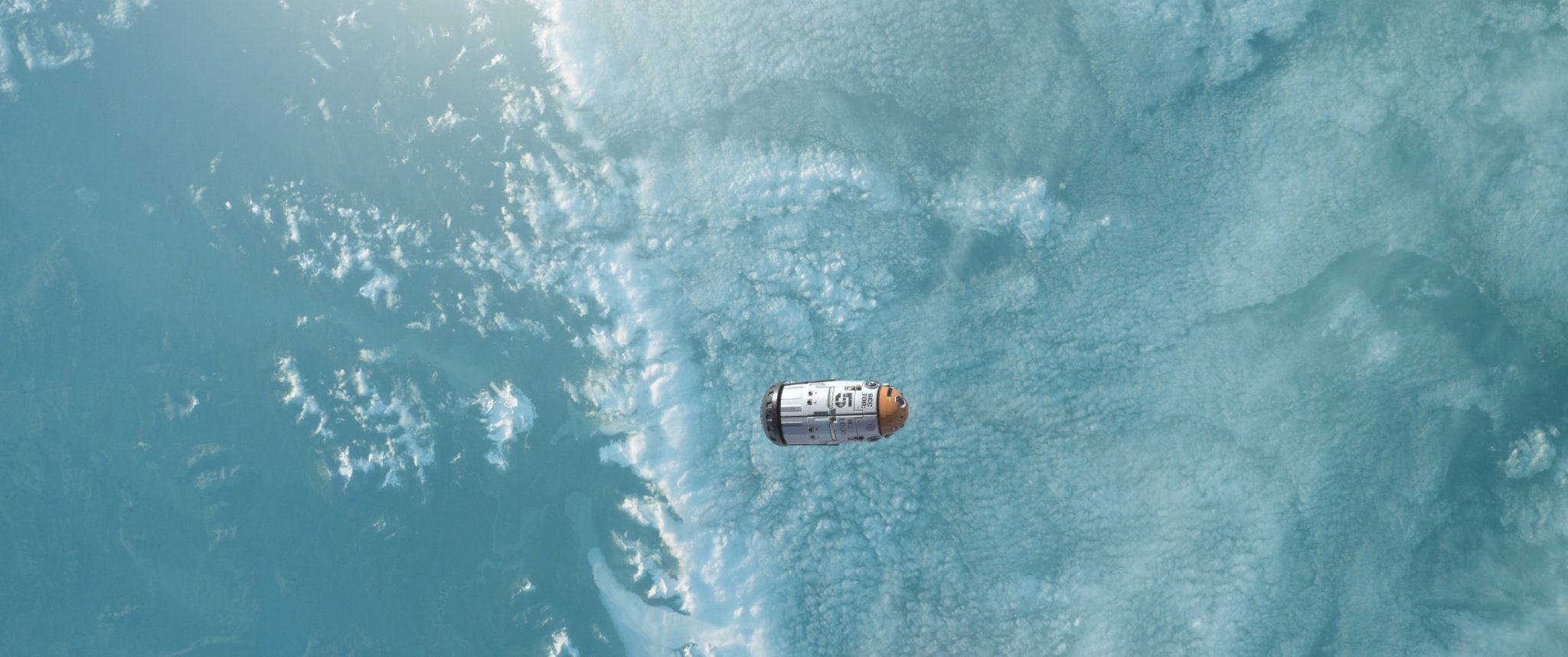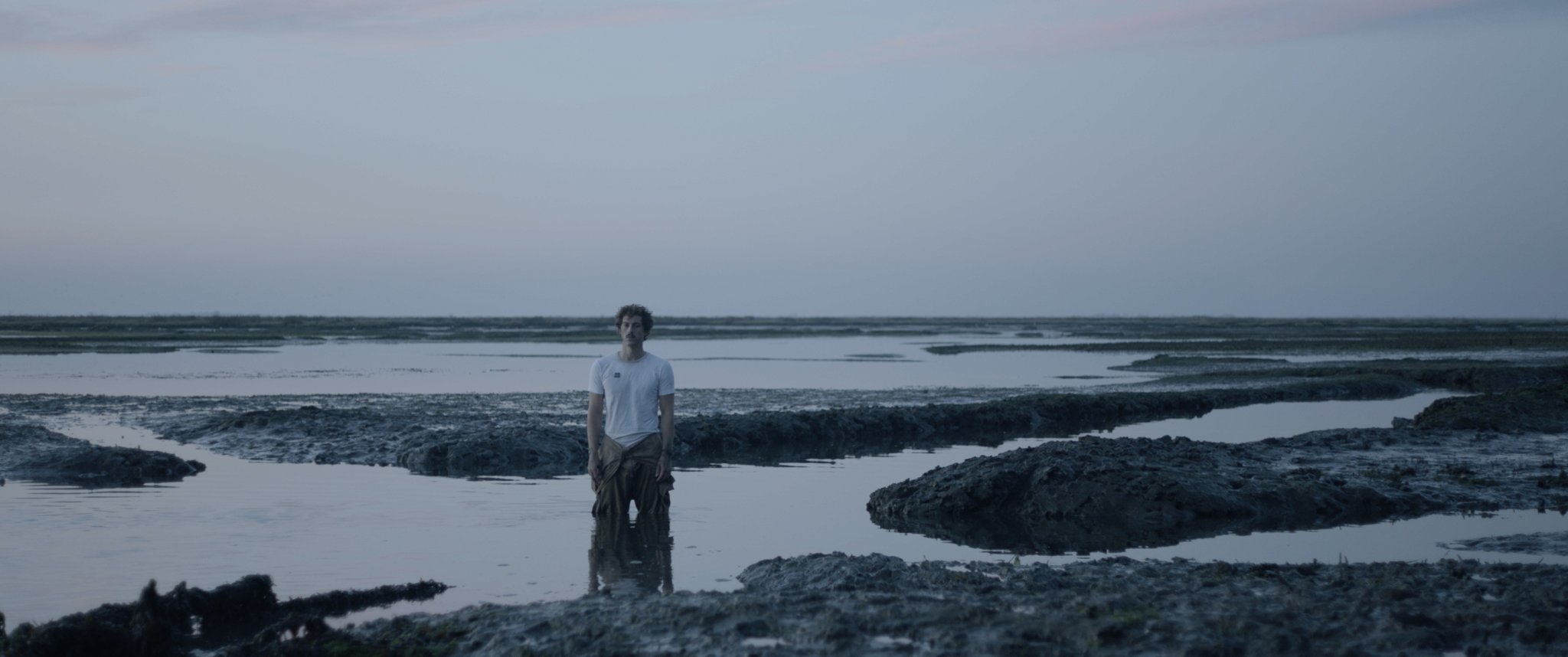MOVIE REVIEW: Infinite Sea
INFINITE SEA (MAR INFINITO)-- 2 STARS
Within the history of space exploration movies big and small, the dangerous uncertainty of such journeys has created the steady narrative of examining human separation. Dramatic quandaries have been presented that outline what an astronaut is leaving behind and, more pressingly, their level of sacrificial willingness to do so. There’s almost always a list of people, things, and places. Films love to parade their departing characters through those nostalgic hooks. In the striking Portuguese film Mar Infinito, or Infinite Sea stateside, the list is only one thing.
The Porto city resident Miguel (Ben Bom’s Nuno Nolasco) dreams of crossing the galaxy in the not-too-distant future. The majority of Earth has become a dying wasteland and colonizing missions are society’s escape from slow decay. Local rockets of the International Space Agency launch several times a week to planets within the solar system of Proxima Centauri. The ISA’s billboard, television, and radio promotions are inescapable in the depopulated urban scene. Miguel is so desperate for that renewing experience, he’s holed himself up in his loft apartment trying to hack into the registration system to correct his denied application and circumvent the process.
What has kept Miguel out of the ISA is a documented phobia of water. A few times a week, Miguel leaves his apartment and ventures to a local pool to try his hand at floating and treading water to break his weakness. During these visits, he meets and befriends the lithe and capable swimmer Eva (Maria Leite of The Translators). The two form an instant and beneficial attraction. She helps him conquer his aquatic fear, and he teaches her how to ride a bike. More importantly, Eva now bears witness to his isolated fixation to leave the planet.
LESSON #1: FACTORS THAT CHANGE YOUR SENSE OF PURPOSE-- As you might ascertain, Eva is the one thing on Infinite Sea’s list of earthly emotional anchors for its protagonist. The smitten couple and their loner psyches melt into each other as shared time increases. They fathom the notion of Miguel finding an alternate universe out in Proxima Centuari and whether or not their proxies would still meet each other and bond. Similar to “open your eyes” in 1997’s Abre los Ojos (and later its ambitious American remake Vanilla Sky five years later), the longing wish from Eva calls upon the film’s title and becomes “find me on the other side of the infinite sea.” Even without words, Infinite Sea has beauty to behold.
LESSON #2: ELEMENTS THAT LOOK INFINITE– Following the heady existentialism of Infinite Sea, the list of things that appear endless are: space, the sea, and love. Director Carlos Amaral– making his feature debut from short films– and cinematographer Jorge Quintela (Mabata Bata) go to great visual lengths to create those parallels cinematically. Below water, the camera captures our two human figures frequently floating within the slowly swirling gyre of backlit water particles. In a similar fashion and speed, spacecraft streak across starry skies and higher heavens.
The feelings of expansiveness are wholly present, and occasionally backed by a slight score from Miguel Santos following Amaral from shorts with his feature debut as well. Powered by those layers of imagery and tone, there was, conceptually, a tremendous potential for a powerful romantic pull with Infinite Sea. Once Miguel succeeds in arriving at his otherworldly destination, wide vistas of desolate marshland (shot in the coastal lagoons near Aveiro, Portugal) expand the scope of long-distance love further.
LESSON #3: HOW DO YOU TAKE SOMEONE WITH YOU?-- Amaral re-creates Eva as a figment of Miguel’s imagination at the failing colony camp. Filling his heart and mind, she appears on-screen in times of despair to embrace him and whispering soothing encouragement in his ear. In these segments of her ethereal performance, Maria Leite is doing her part to create swell in Infinite Sea as that factor of Lesson #1 that cannot be repressed.
Too often, however, Nuno Nolasco displays dreadfully muted emotions in return, not unlike Santos’ miniscule score. The narrated internal monologues given to him by Amaral’s script try to speak for his blank exterior, but the pulse rate of Infinite Sea never quickens. Not enough significant passion ever overflows from that mustached shell to turn Leite’s swell into a unified surge of compelling sweep.
In a scant 76 minutes, Infinite Sea bravely approaches contemplative science fiction with a tiny budget for VFX (also managed by Aramal himself) and an aim for abstract and cognitive obstacles of the human condition. Much can be complimented in those crisply stylish attempts at big ideas and even bigger questions. Yet, it is hard to fathom the so-called infinite as having something missing, but a penetrative punch is absent. The bridled chemistry of the leads is what you will put your finger on to blame. Add fifteen minutes and let a few white dwarf stars go supernova for a bit.
LOGO DESIGNED BY MEENTS ILLUSTRATED (#1103)











